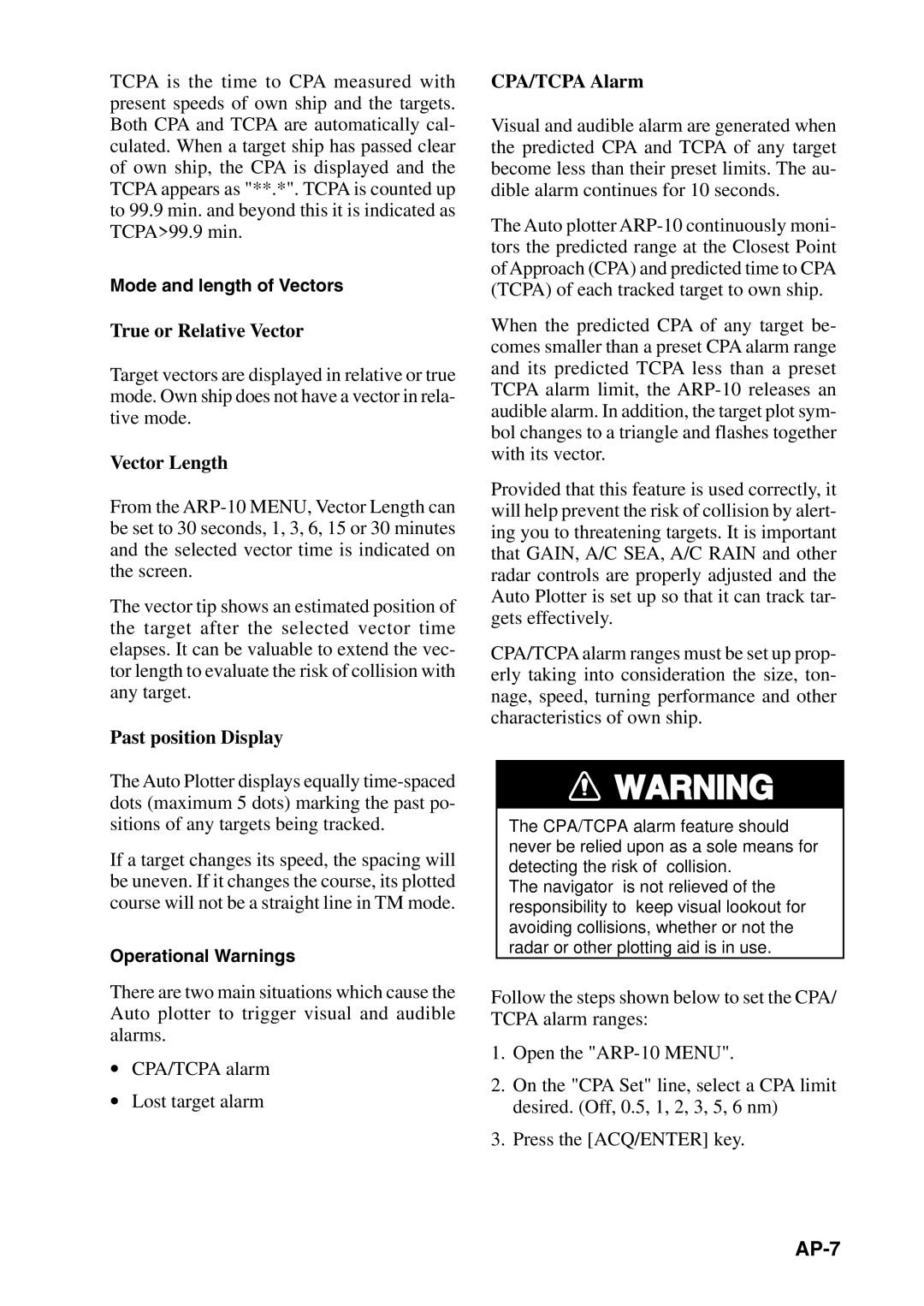
TCPA is the time to CPA measured with present speeds of own ship and the targets. Both CPA and TCPA are automatically cal- culated. When a target ship has passed clear of own ship, the CPA is displayed and the TCPA appears as "**.*". TCPA is counted up to 99.9 min. and beyond this it is indicated as TCPA>99.9 min.
Mode and length of Vectors
True or Relative Vector
Target vectors are displayed in relative or true mode. Own ship does not have a vector in rela- tive mode.
Vector Length
From the
The vector tip shows an estimated position of the target after the selected vector time elapses. It can be valuable to extend the vec- tor length to evaluate the risk of collision with any target.
Past position Display
The Auto Plotter displays equally
If a target changes its speed, the spacing will be uneven. If it changes the course, its plotted course will not be a straight line in TM mode.
Operational Warnings
There are two main situations which cause the Auto plotter to trigger visual and audible alarms.
•CPA/TCPA alarm
•Lost target alarm
CPA/TCPA Alarm
Visual and audible alarm are generated when the predicted CPA and TCPA of any target become less than their preset limits. The au- dible alarm continues for 10 seconds.
The Auto plotter
When the predicted CPA of any target be- comes smaller than a preset CPA alarm range and its predicted TCPA less than a preset TCPA alarm limit, the
Provided that this feature is used correctly, it will help prevent the risk of collision by alert- ing you to threatening targets. It is important that GAIN, A/C SEA, A/C RAIN and other radar controls are properly adjusted and the Auto Plotter is set up so that it can track tar- gets effectively.
CPA/TCPA alarm ranges must be set up prop- erly taking into consideration the size, ton- nage, speed, turning performance and other characteristics of own ship.
![]() WARNING
WARNING
The CPA/TCPA alarm feature should never be relied upon as a sole means for detecting the risk of collision.
The navigator is not relieved of the responsibility to keep visual lookout for avoiding collisions, whether or not the radar or other plotting aid is in use.
Follow the steps shown below to set the CPA/ TCPA alarm ranges:
1.Open the
2.On the "CPA Set" line, select a CPA limit desired. (Off, 0.5, 1, 2, 3, 5, 6 nm)
3.Press the [ACQ/ENTER] key.
